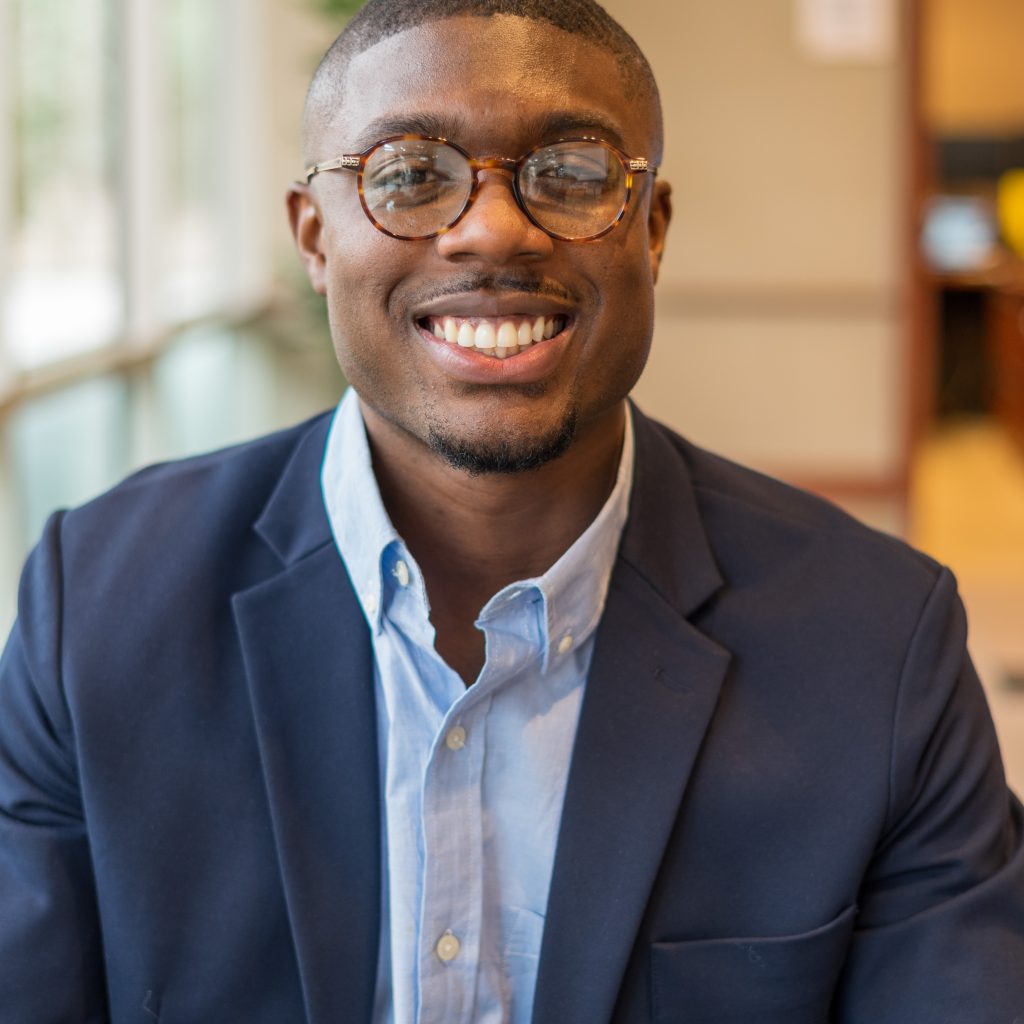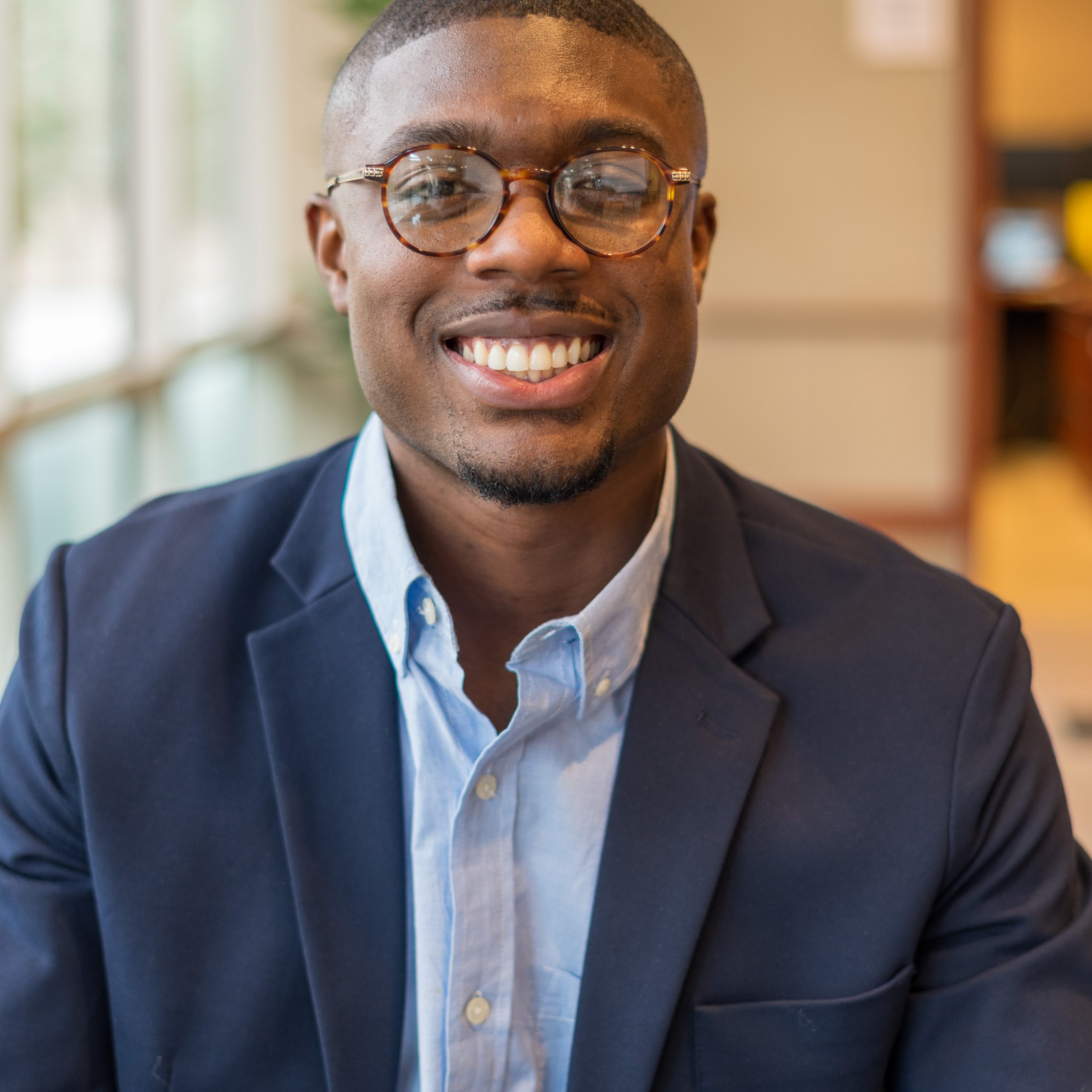Americans are often put in the unexpected position of navigating “disasters” – from the natural ones such as hurricanes and fires, to life events like company restructuring, divorces and illness. Michael White’s story is a testament to the power of planning to help lessen the financial impact of these traumatic events.
It was serendipitous that Michael met with one of Operation HOPE’s Financial Wellbeing Coaches, Marcus Purnell, more than a year before the company underwent corporate restructuring. At the time, Marcus was a coach for the HOPE Inside the Workplace program at UPS and guided employees with credit and money management – now he serves a larger market as a Financial Disaster Preparedness and Recovery Coach funded by the UPS Foundation.

“Operation HOPE actually had a location in the headquarters of my employer,” recalled Michael. “I came down there initially looking for some financial budgeting guidance as I really wanted to know how to boost my credit score and eventually buy a home. And it just blossomed from there—from an amazing partnership and just so many resources and help.”
The convenience of having Operation HOPE on-site meant Michael could meet with Marcus during lunch breaks. “It was just an excellent setup where I could get all the information and knowledge I needed in a very convenient way,” he said.
When Michael first met Marcus, he was stuck in the cycle of opening new credit cards to pay off old debt. “I was avid about opening up a new credit card to pay existing debt… robbing Peter to pay Paul,” Michael shared.
Marcus challenged him to stop that pattern and instead use a “snowballing” strategy to reduce debt. They started to attack the cards with the highest credit limits and interest rates and then when they were paid off, start the process again with the next credit card.
Marcus also encouraged Michael to reach out to credit card companies to ask about their hardship programs. “A lot of people don’t know that most credit card companies have programs to help you stop the debt from accumulating.”
One of the most significant shifts in Michael’s financial mindset came when Marcus helped him analyze his expenses. “I had a 2019 green Dodge Challenger. It was beautiful… but it was expensive. One of the things that we talked about in order to get my budget under control was to take a deep dive in my expenses. And that was an expense that I could let go.”
Michael traded the car in, bought a 2019 Kia Optima with cash, and freed up $700 a month to put towards paying off debt. “It was a financial win that still resonates to this day because I still have that car and I’ll ride it until the wheels fall off.”
Michael’s financial decisions were about to pay off again when his employer announced a restructuring that eliminated his job position. Already on the path to reducing debt and building a nest egg, Michael was prepared to navigate this unexpected career change without panic. “While I actually found another job not too long after, I wasn’t stressing and thinking ‘money, money, money’ first. It was like, ‘okay, where does the opportunity and money align rather than, oh, it has to be all about the finances.’”
Michael credits Marcus’s mentorship style as a key reason he stayed committed. “Marcus really did care—not just my finances, but everything I was doing in my life,” he said. As for Marcus, he is thrilled that Michael sought out this opportunity proactively. “Michael proved that financial coaching is not a last resort, but a first choice for anyone serious about long-term success!”
Today, Michael owns a home, runs a thriving career support business, and continues to recommend Marcus to others. “Whenever somebody has an issue when it comes to credit or buying a home, I’m like, ‘I got a guy.’”
Michael believes that for mentorship to be effective, it’s important to trust the process and know that the difficult decisions you’re making now can lead to positive outcomes in the long term. “Everything we did—the debt payoff, the budgeting, the savings—prepared me for where I am now. I wouldn’t be here without Operation HOPE, Marcus, and my company that connected me to the program in the first place,” he said.
For more information: OperationHOPE.org. Follow the HOPE conversation on Twitter, Facebook, Instagram or LinkedIn.
